The Hottest Tips to Cool Down a Room This Summer
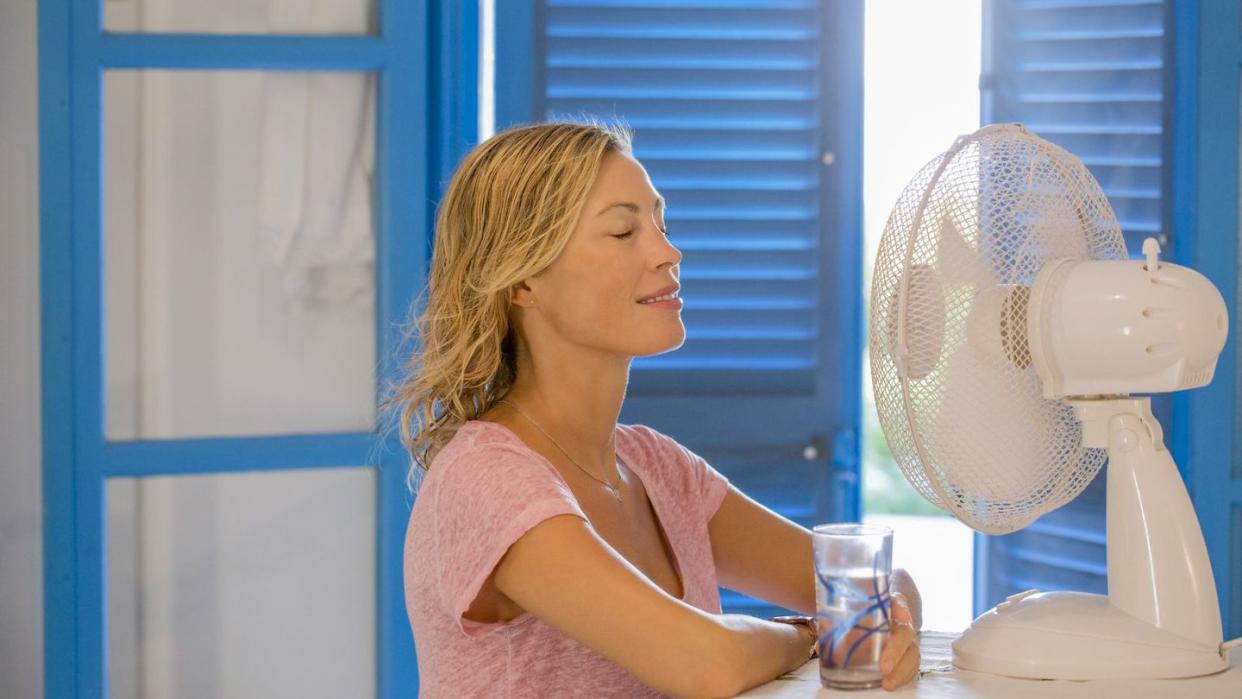
If there's anyone who knows about summer heat, it's Ree Drummond. Pawhuska temperatures are no joke! She once wrote, "The past month in northeastern Oklahoma has been brutally, brutally hot, the hottest I can remember in recent years. Our air conditioning units have been working overtime, set to about 65 every day, but unable to keep up. When we get our electric bill in a few days, we will be selling the ranch to pay it."
Sounds miserable, right? And it could be even worse for those who don't have air conditioning or a lot of windows. Extreme heat can pose some pretty serious health concerns, such as heat stroke, heat exhaustion, and lack of sleep—so figuring out how to cool down a room during the dog days of summer is definitely important.
Fortunately, there are plenty of cooling strategies that can take your room from stifling to manageable. Of course, you can grab a portable AC unit or line your home with fans, but there are also methods that are less expensive and easier to manage. Browse the tips below to beat the heat—and fast!
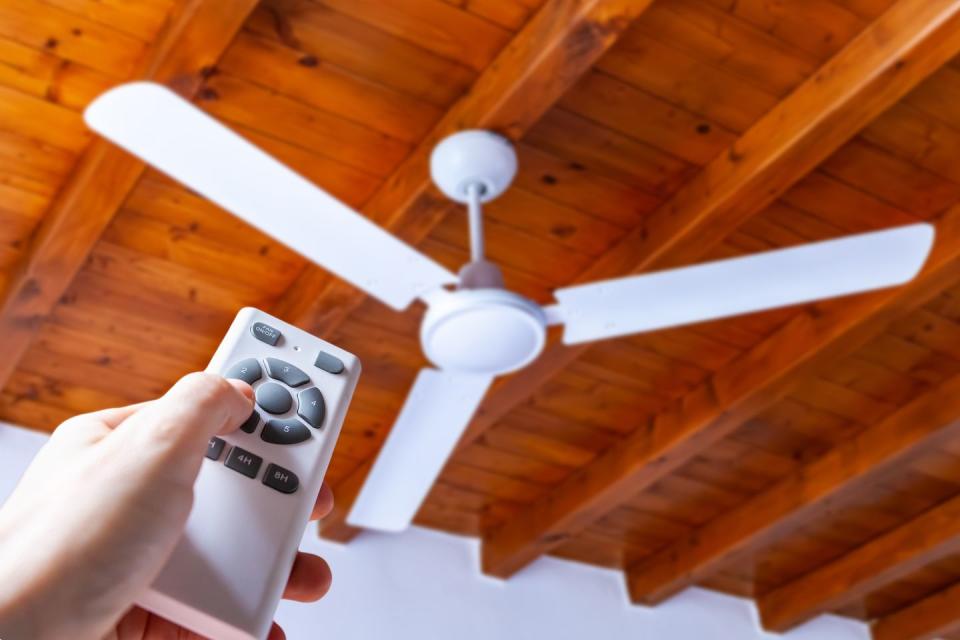
Reverse Your Ceiling Fan
A simple trick to keep your cool: make sure your fan is set with the blades running forward or counterclockwise. This promotes cooling by pulling the cooler air from the ground and blowing it back down onto you, creating a breeze that should keep you comfortable. According to the Natural Resources Defense Council, "A ceiling fan can help a room feel up to 10 degrees cooler and uses just 10% of the energy of a central air conditioner." So, you're staying cool and saving energy. Just be sure to switch your fan back to clockwise in the winter to circulate warm air.
Cover Windows During the Day
During the hottest parts of the day, you'll benefit from closing your curtains or blinds to block out those hot sun rays. Take it from the U.S. Department of Energy, which says "About 76% of sunlight that falls on standard double-pane windows enters to become heat." Thermal curtains and blackout curtains are especially effective in reducing warmth.
Open Windows at Night
Once the sun sets, go ahead and open up those windows again! Since the temperatures outside are now likely lower than in your home, removing covers and opening the windows will allow cooler air to circulate. This can significantly drop temps in your room by morning.
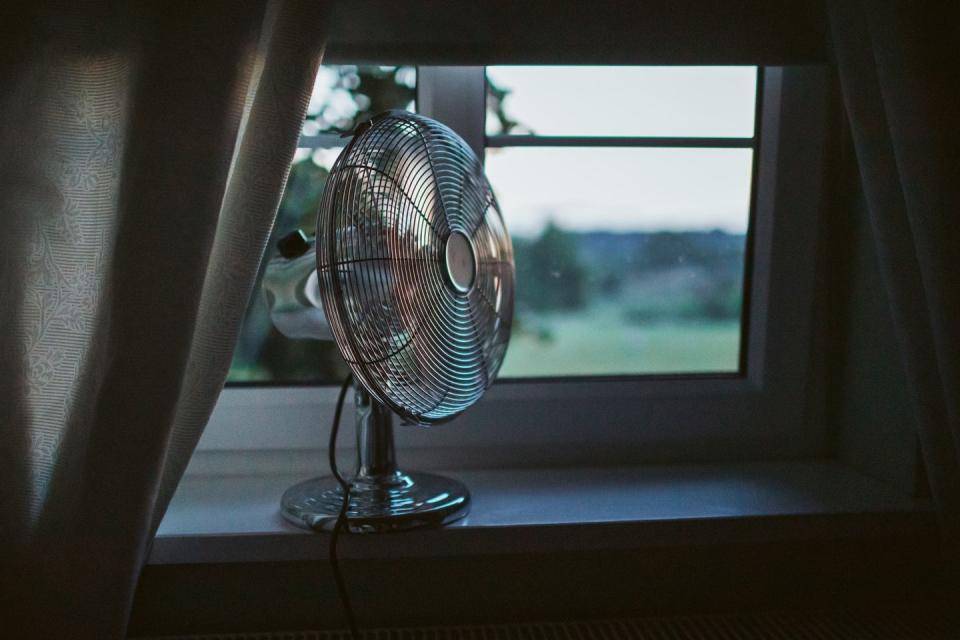
Create a Cross Breeze
Yes, you can make it just as breezy indoors as outdoors! According to the National Renewable Energy Laboratory, "You can create natural cross-ventilation by opening your windows and doors, and adjusting the size and location of the openings to ventilate different parts of the home." For example, open a smaller window to let in air and a larger window to let it out. This increases air speed and, in turn, cools your room. You can also do this by positioning fans near windows and doors to expel warm air and bring in colder air.
Reduce Heat Sources
Say hello to no-cook meals! A hot stove and oven will add additional heat to your home, so avoid turning them on during the hottest days of the summer. A microwave is definitely better than an oven, but to really preserve cool air, just skip the kitchen appliances all together. And if you're really craving a hot meal, opt for firing up the grill outside instead.
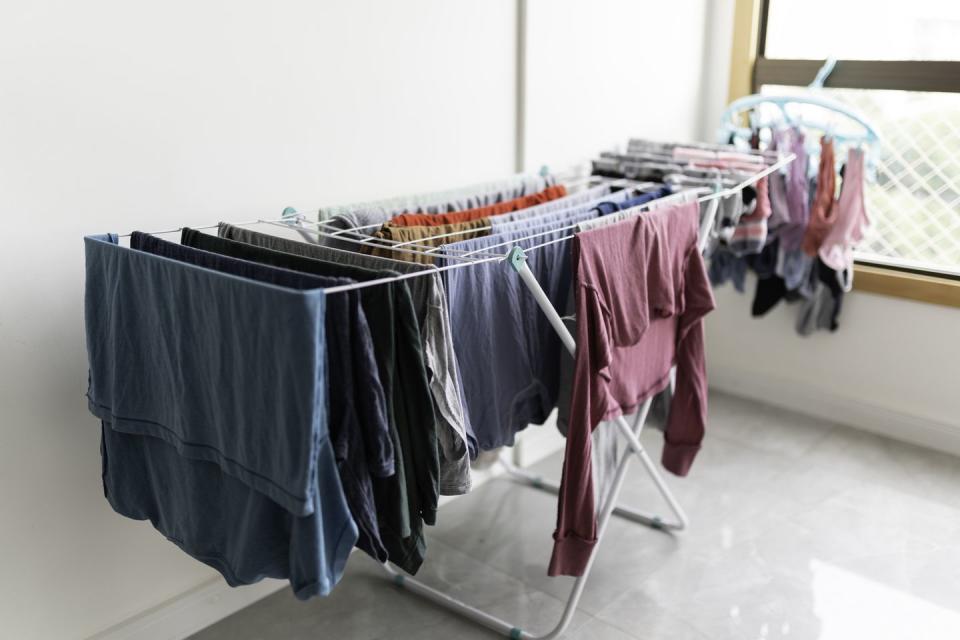
Unplug Unnecessary Appliances
Speaking of appliances, they definitely ramp up the temperatures in your space—especially dishwashers, washers, and dryers. To reduce this residual heat, try washing your dishes by hand and substituting your dryer with an indoor drying rack. And while these bigger appliances are really a problem, even smaller electronics produce unnecessary heat (even when not in use). Turn off—or better yet, unplug—devices like computers, televisions, and chargers when you don't need them.
Sleep Cooler
Lounging in your home during hot summer months can be uncomfortable, but trying to sleep at night? That's nearly impossible! You can optimize your bed to stay cool and comfortable by trying a few easy tricks. First, swap out your heavy bedding (like comforters) for lightweight sheets and blankets. Then, invest in sheets and pillowcases that are designed to stay cool, such as those made from cotton, bamboo, Tencel, and hemp. These fabrics are both breathable and help wick away moisture.
You can also try freezing your socks and pillowcases before bed. Just stick them in the freezer about an hour before you want to hit the hay, so they'll keep you nice and chilly as you sleep. This can also be done with icepacks! Finally, if you're sill too sweaty to sleep, try moving to a lower level in your home or placing your mattress on the floor. After all, heat rises!

Make a DIY Air Conditioner
Instead of melting away, get creative with your own homemade AC units. Luckily, there are several ways to do this. You can fill a bowl with ice or ice packs, then place it in front of a fan. As the air blows over the ice, it cools down and circulates through the room for immediate relief. Other options include hanging a cold, wet sheet in front of the fan (or open windows) and attaching frozen water bottles to the back of the fan. All of these DIY solutions offer a budget-friendly alternative to traditional air conditioning.
Close Doors to Unused Rooms
Here's an idea that's so simple, but plenty effective. You can minimize the amount of space that needs to be kept cool by closing off unused bedrooms and bathrooms. By doing this, you are trapping the heat and keeping it out of the way.
Dehumidify the Air
Along with providing chilled air, air conditioners also remove unwanted moisture t0 keep your room from feeling extra warm and stuffy. So, if you don't have an AC unit, consider grabbing a dehumidifier instead. A high-quality unit will remove any excess moisture in the air to improve air quality and help you feel cooler
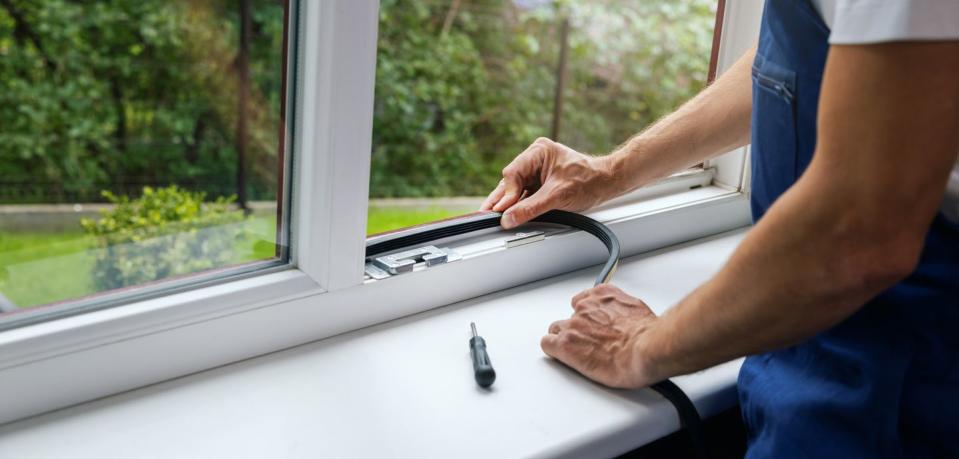
Seal Gaps on Windows and Doors
While weather-stripping may seem more beneficial in the winter, it's actually just as helpful in the summer. Gaps around windows and doors will allow the cold air in your home to leak out. So, seal the leaks with caulking, install weather-stripping, and consider adding even more insulation to keep the cool air in and the hot air out.
Use LED Lights
Did you know that incandescent lights produce a significant amount of heat? If you still have these dated bulbs hanging around your home, making the switch to energy efficient lighting such as LED or CFL bulbs will decrease the heat (and they last a lot longer, too). In fact, Constellation Energy says they "Emit 90% less heat than incandescent bulbs."
You Might Also Like
